A Father in Mali Lives What He Teaches
Published on June 13, 2024
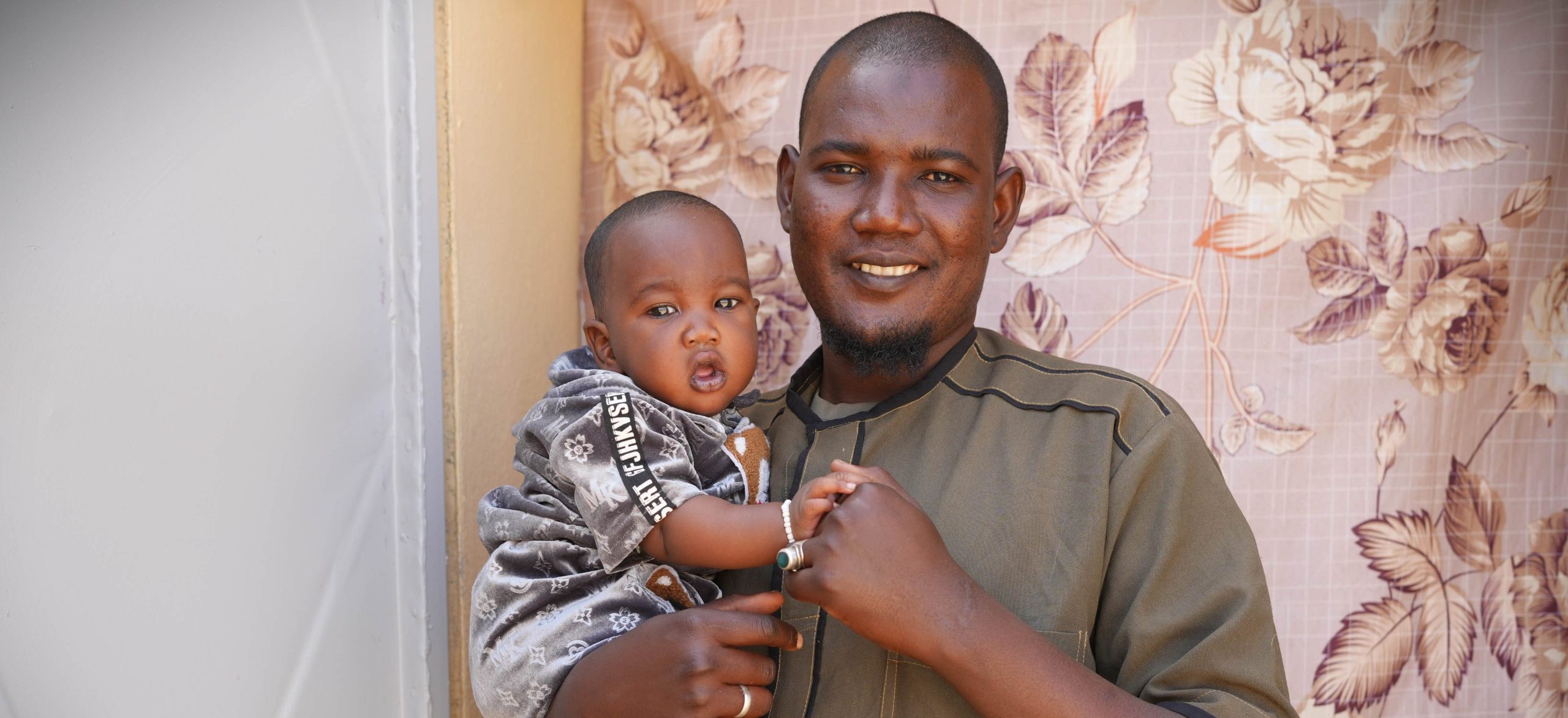
Photos and narrative by Moussa Koumare, Knowledge Management and Communications Advisor, MOMENTUM Integrated Health Resilience Mali
Abdourahamane Mohamed Dicko, age 36, is the father of a four-month-old son, Annajib Abdourahamane. As a schoolteacher, he is known locally for his humility and courtesy, and he enjoys great popularity among young people in the area. His neighborhood is Aljanabandia in Mali’s northeast city of Gao, a dry and dusty municipality along the Niger River at the southernmost reaches of the Sahara Desert. Abdourahamane is well-known for devoting his energy to promoting the health and well-being of others in his neighborhood. He is a member of the local community health association, serving as a social mobilizer during health campaigns.
Abdourahamane has participated in several health activities organized by MOMENTUM Integrated Health Resilience through local nongovernmental organizations (NGOs), helping to organize discussion sessions on voluntary family planning and sexual and reproductive health for youth and adolescents. “As a father and a youth leader in the community, my role is to provide the right information,” explained Abdourahamane while reviewing his notes in the family courtyard after a recent meeting.
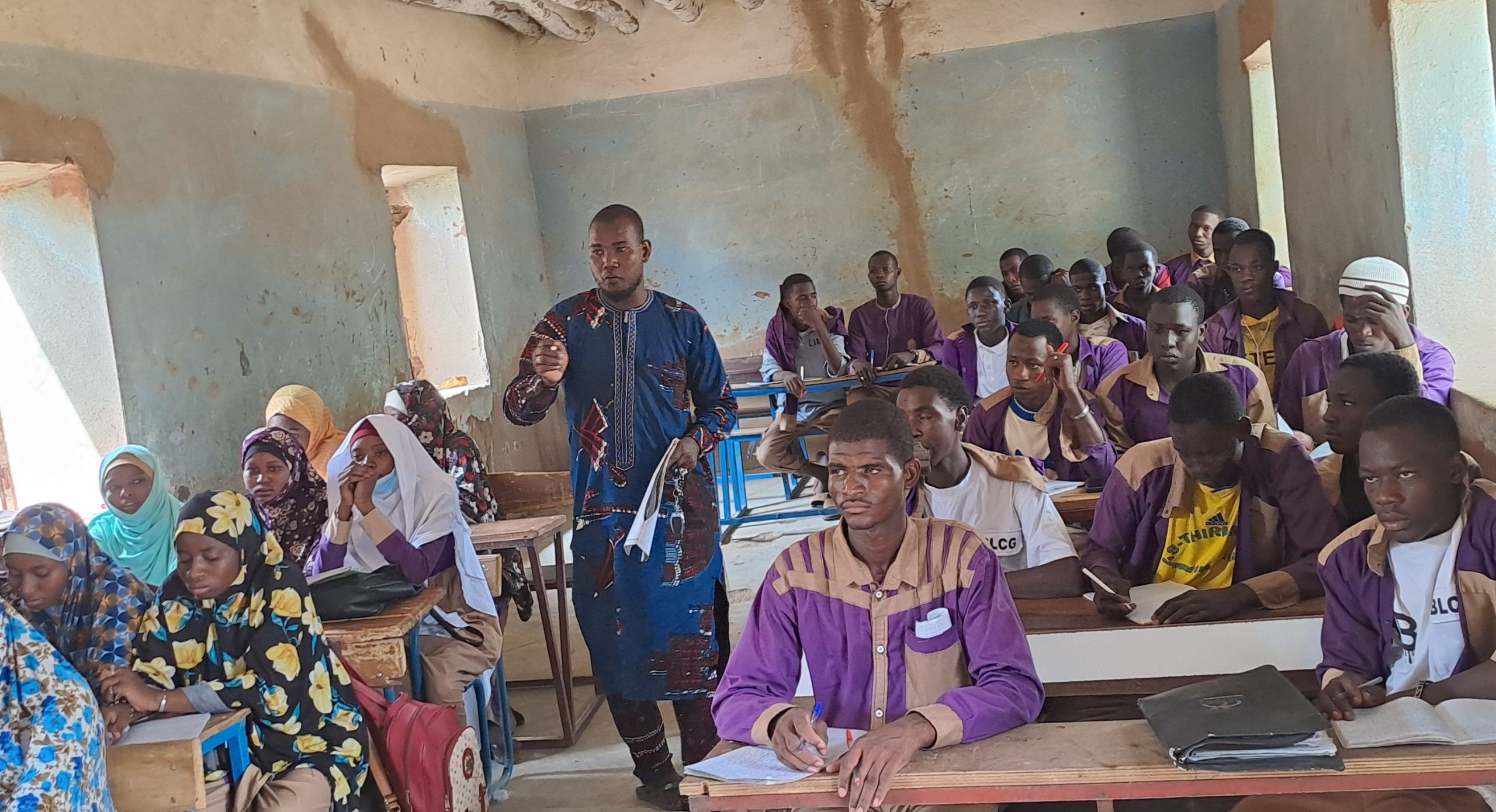
Abdourahamane teaches Arabic and other subjects to young people in the local high school. But this is just one part of his engagement with youth in his community.
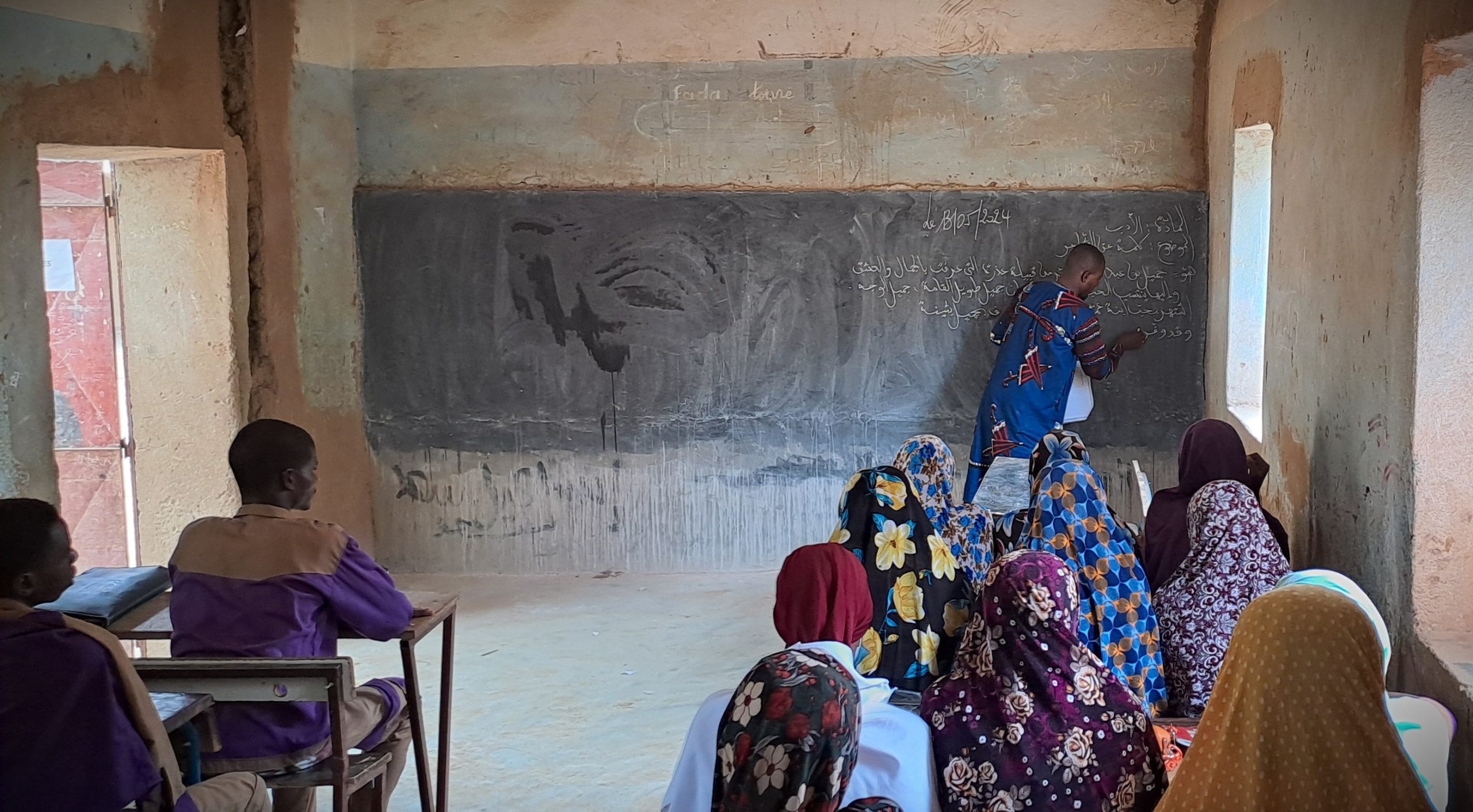
Along with academic topics, Abdrahamane also instructs adolescents and young people on reproductive health and voluntary family planning.
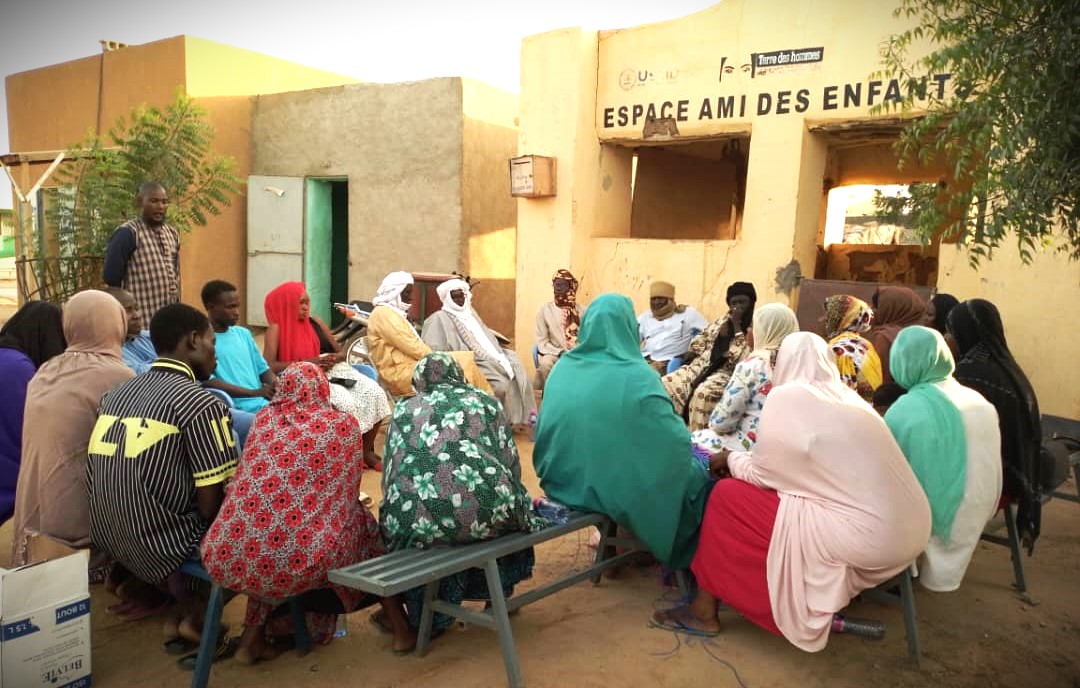
Abdourahmane moderates health discussions with community members, including sessions with members of the community health association (ASACO), religious leaders, youth representatives, representatives from the local women’s association, and neighborhood leaders, on family planning in Aljanabandia. Stakeholders learn about their options for birth spacing, access to and quality of care, and other health topics.
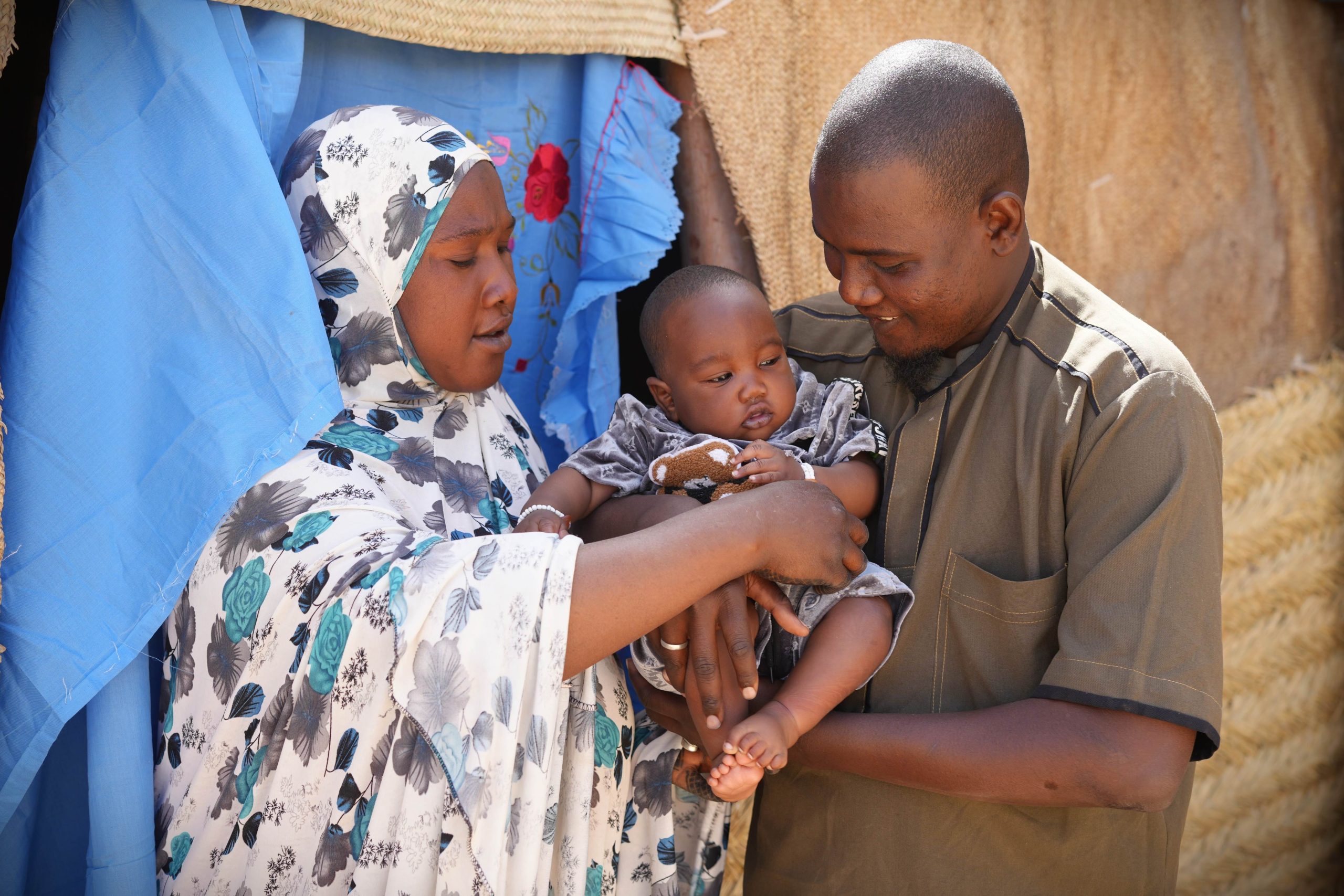
While preparing for a routine visit to their community health center with his wife Ramata, 28, and their child, Abdourahamane noted that, “All the advice I give to others on good health practices, I practice them within my own family.”
Abdourahamane and his family visit the Bani Hugu community health center, which is the largest in the local area. The name means “house of peace.” Staff members have been trained by MOMENTUM on different topics relating to maternal, newborn, and child health. The walk is about a mile from Abdourahamane’s home, and they make an effort to arrive in plenty of time for their appointment.
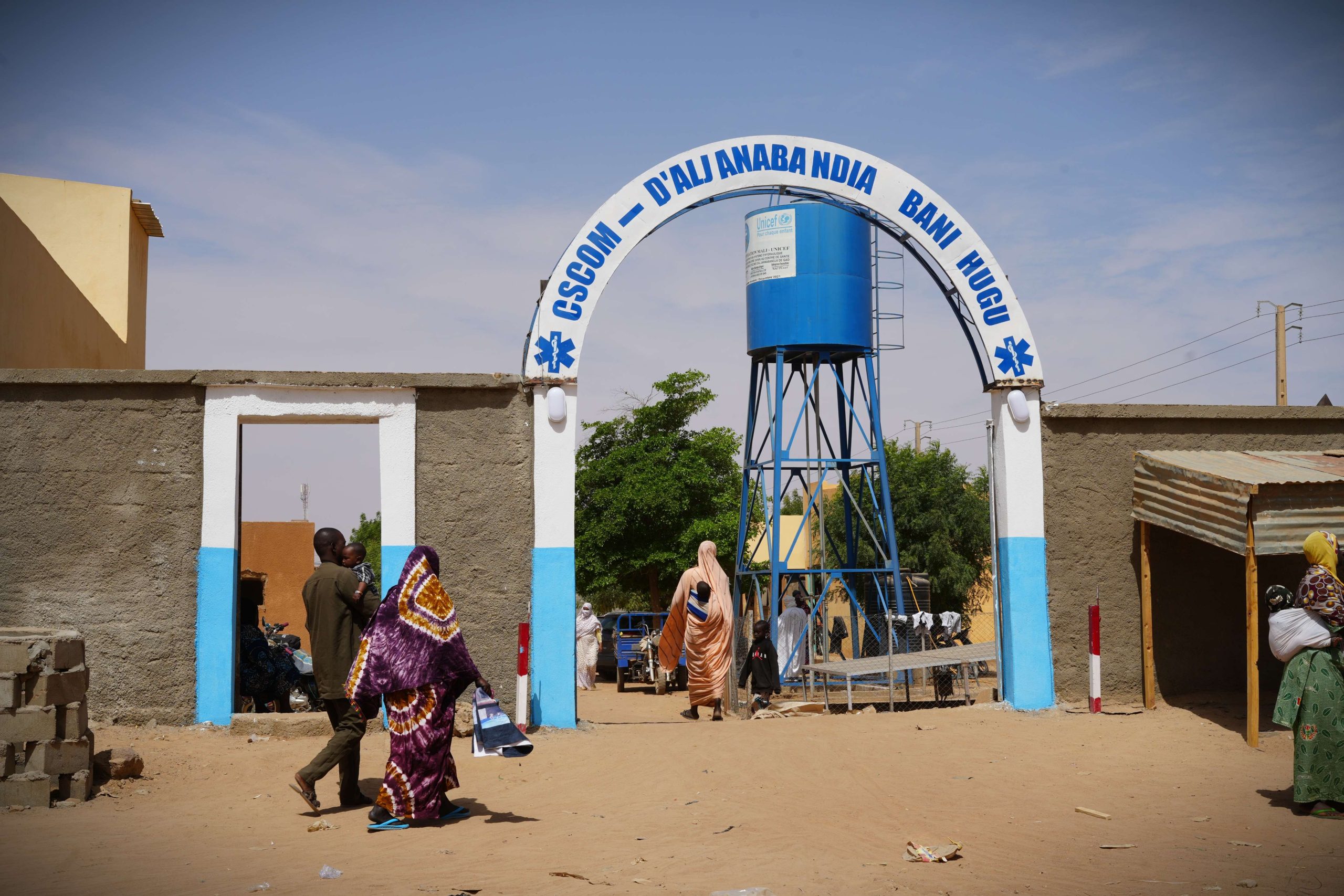
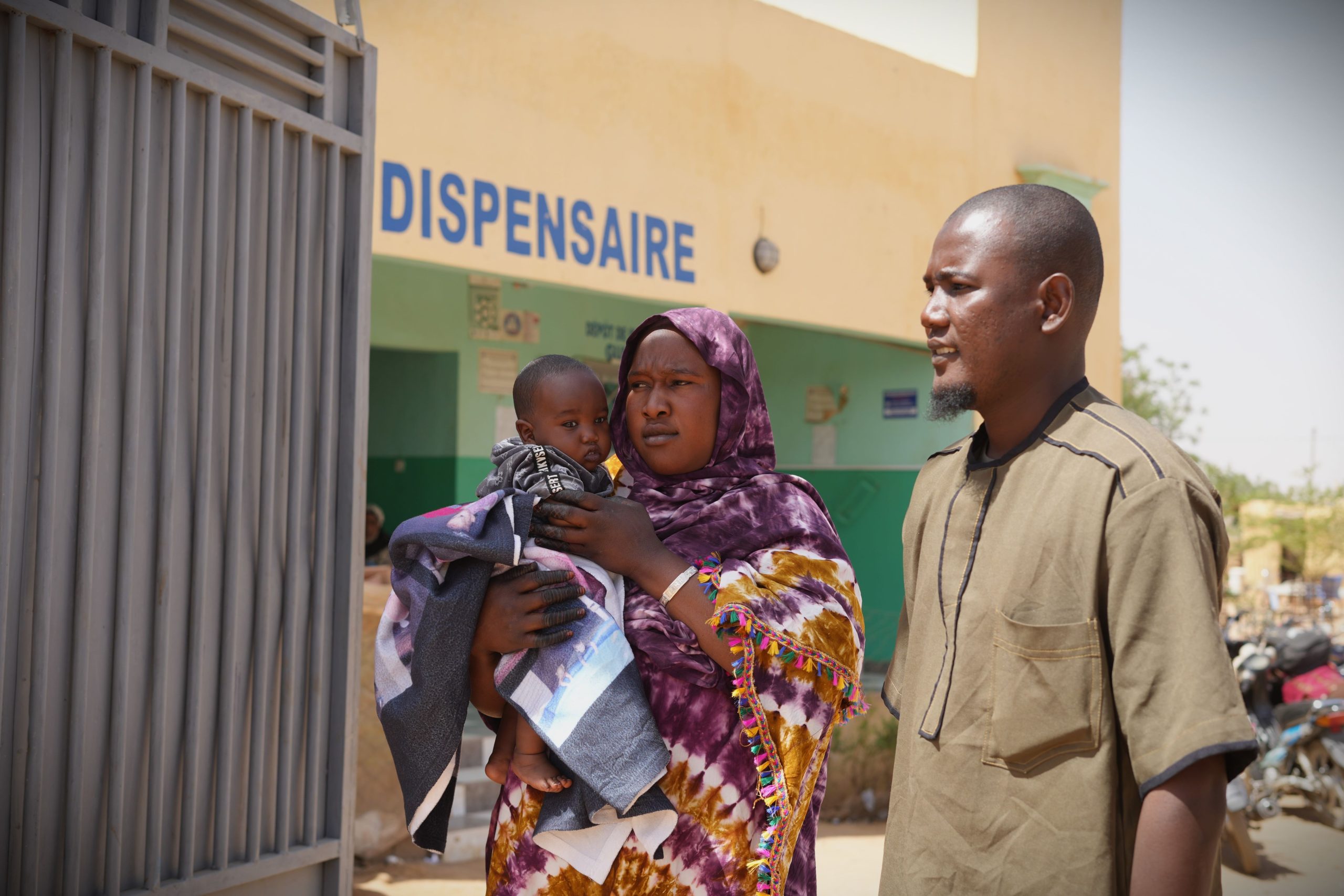
“MOMENTUM strengthens the skills of health professionals working at our community health center, which my family and I visit whenever we have health concerns,” says Abdourahamane.
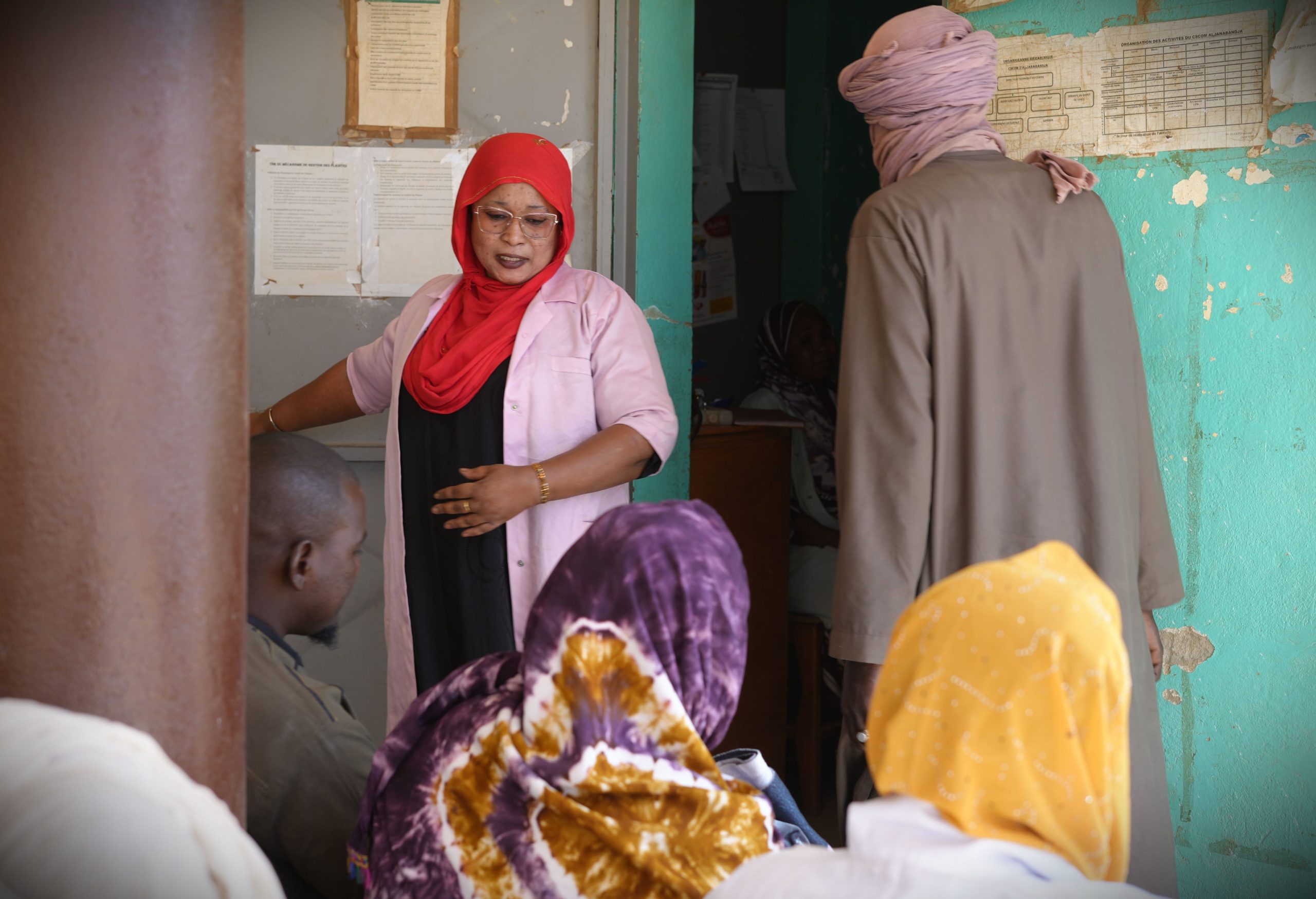
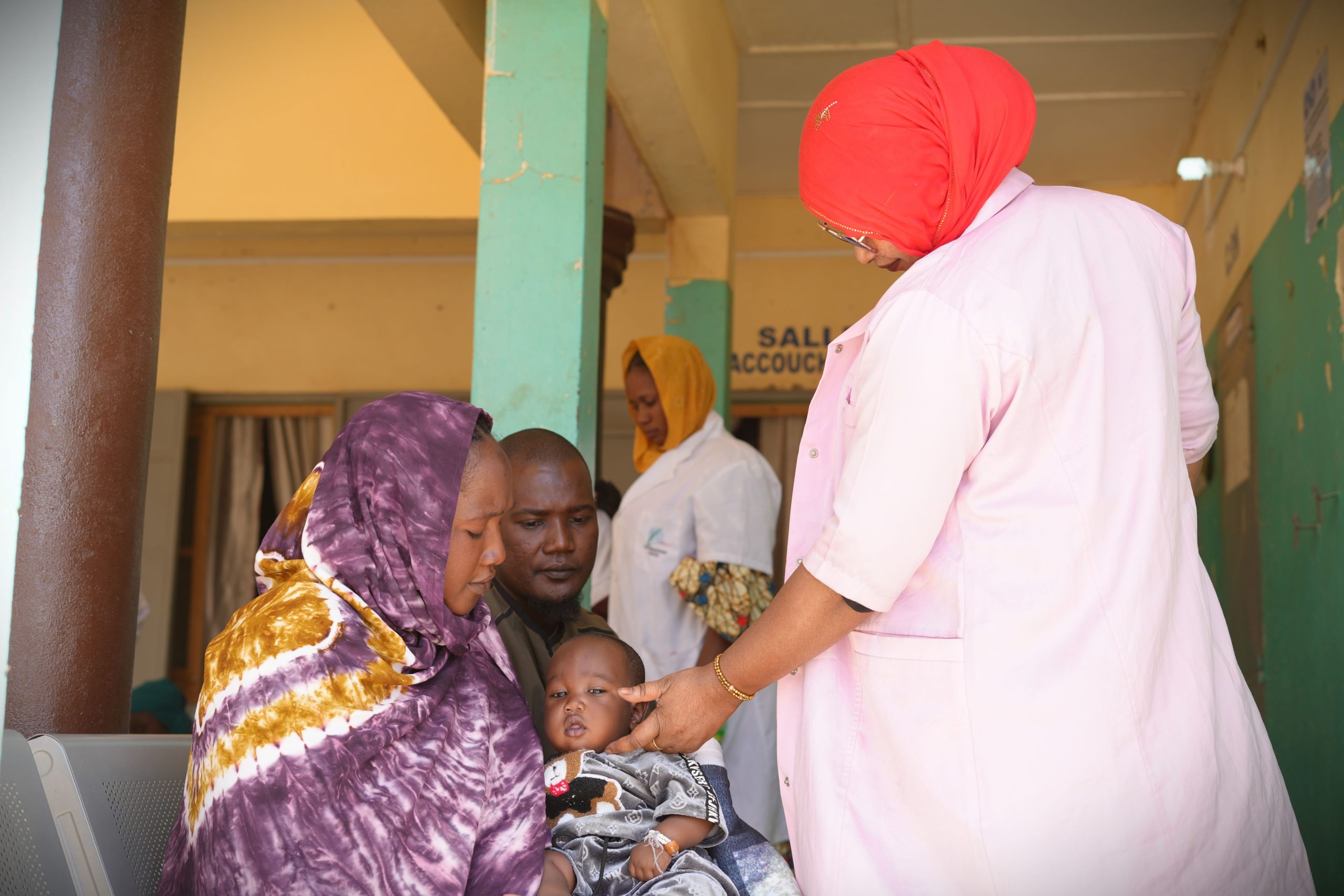
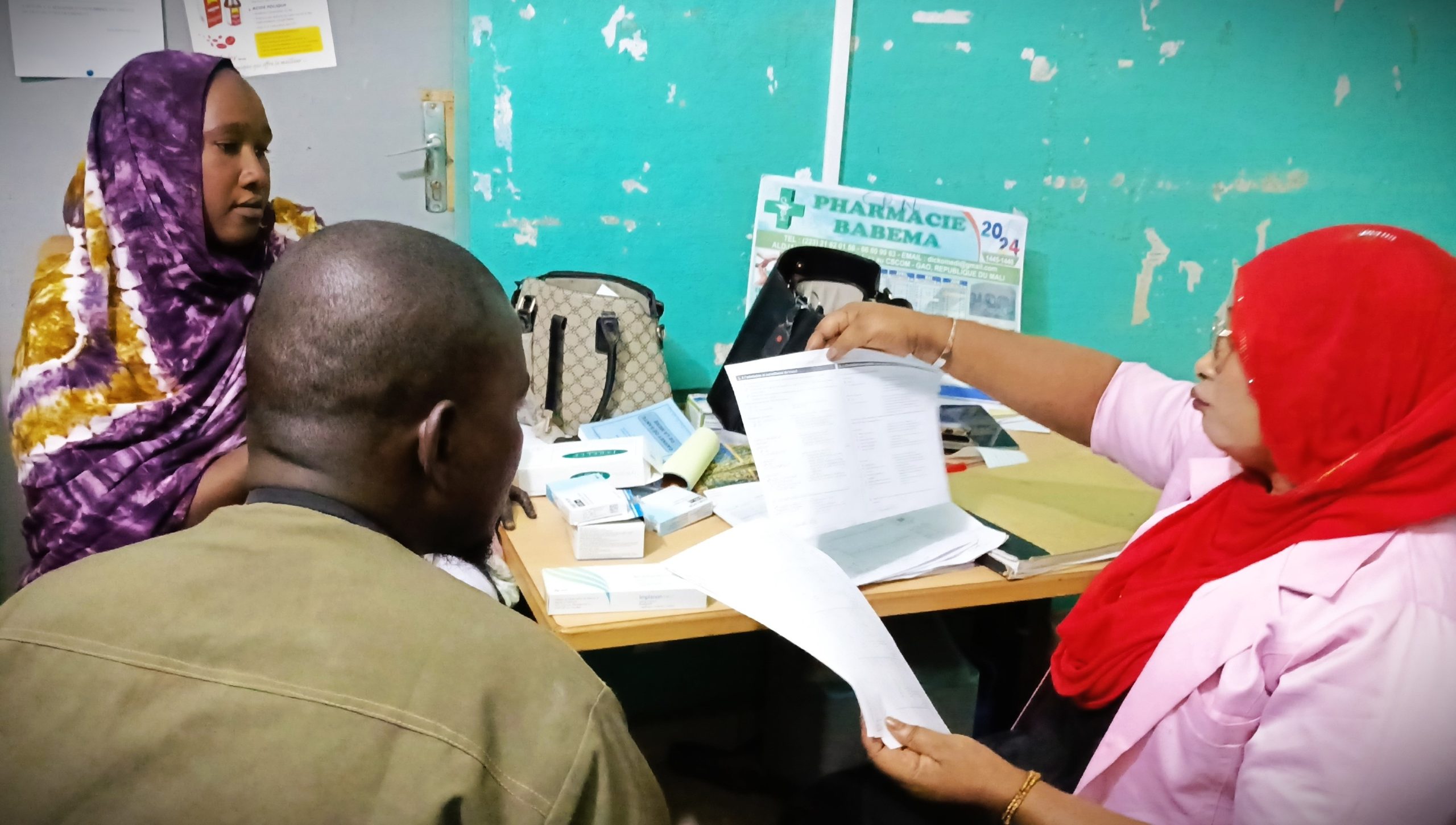 Abdourahamane and Ramata are received by a midwife named Nana. She tells them she is happy to see that the baby is in good health and invites them into her office for a consultation. They review Annajib’s medical history to be sure that things are in order and that his growth is progressing normally.
Abdourahamane and Ramata are received by a midwife named Nana. She tells them she is happy to see that the baby is in good health and invites them into her office for a consultation. They review Annajib’s medical history to be sure that things are in order and that his growth is progressing normally.
MOMENTUM has trained six staff members at the health center, including the center’s technical director, three maternity staff, and nutrition and pharmacy staff. The center provides preventative services such as vaccinations; nutrition counseling; screening and treatment for malnutrition; educational talks and public health campaigns, such as vaccinations and distribution of mosquito nets; childbirth, prenatal, and postnatal care; and family planning services.
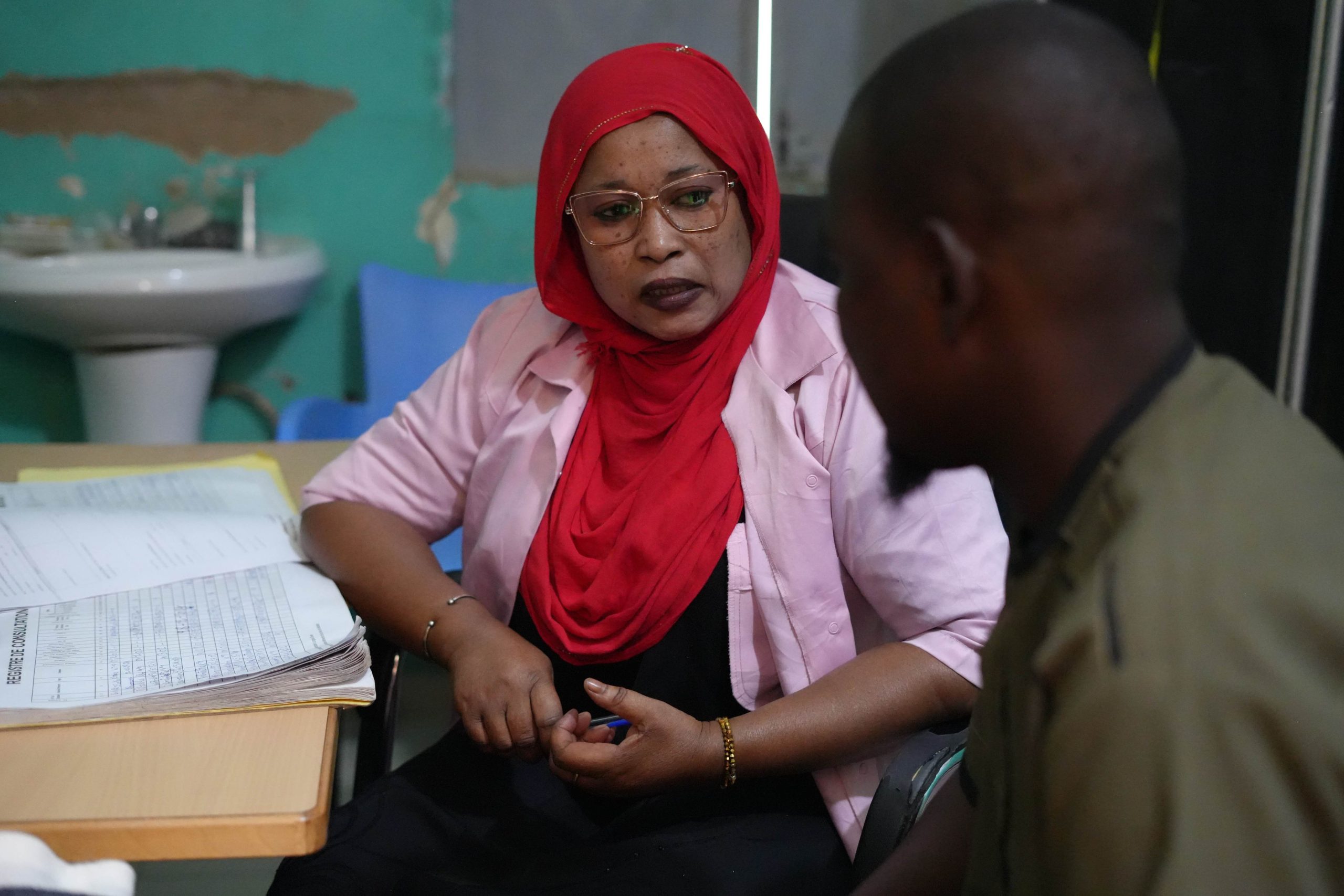
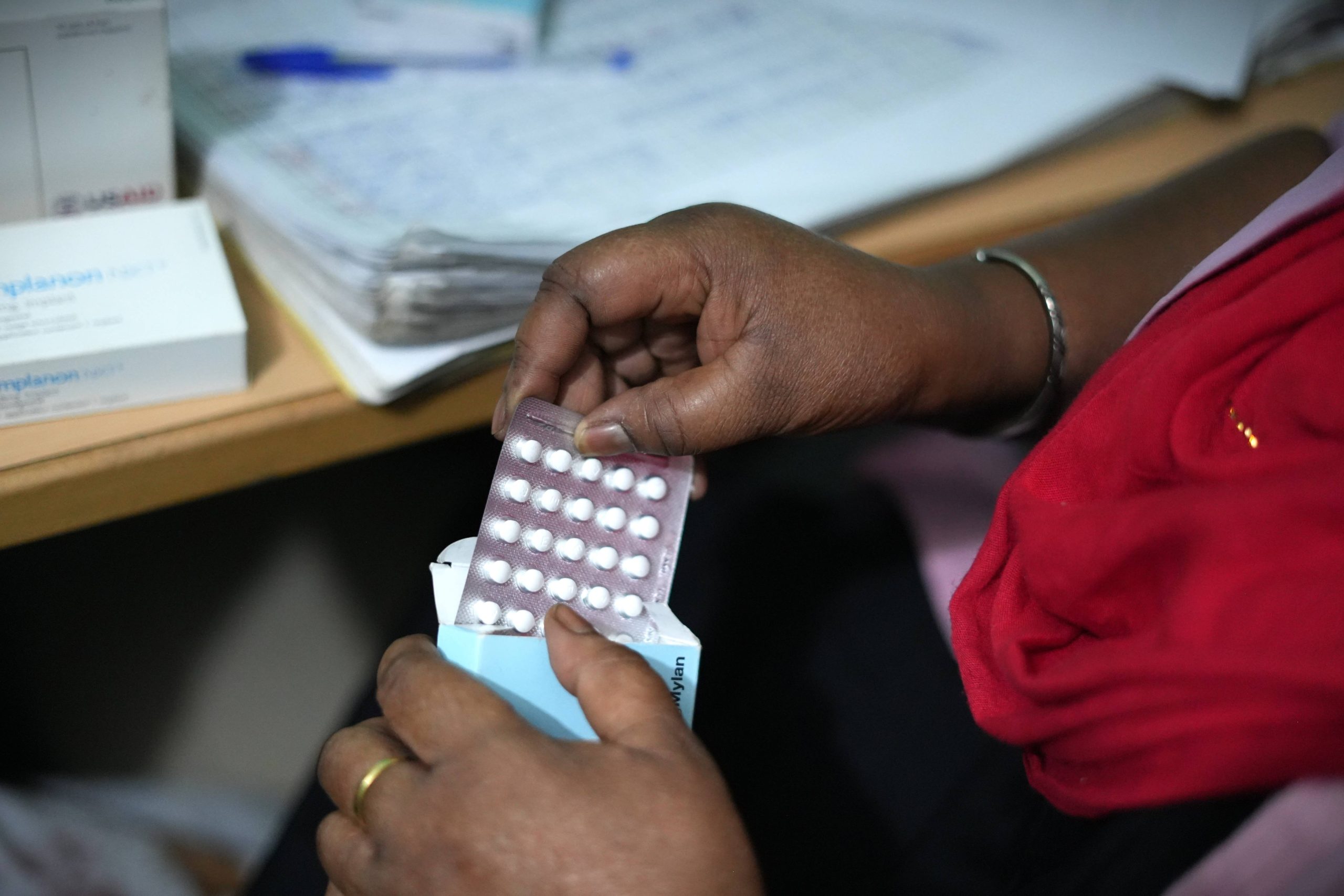
After giving Abdourahamane some advice about childcare, the midwife reviews the family planning methods available in the health center and explains their use and benefits, should they choose to select one. The couple knows from MOMENTUM-sponsored community discussions that birth spacing is important for the health of both a mother and her children. “After our child was born, I explained to my wife the importance of birth spacing,” says Abdourahamane. “And even during her prenatal consultations, the midwives also explained the advantages and different methods of family planning. These services have been useful to us.”
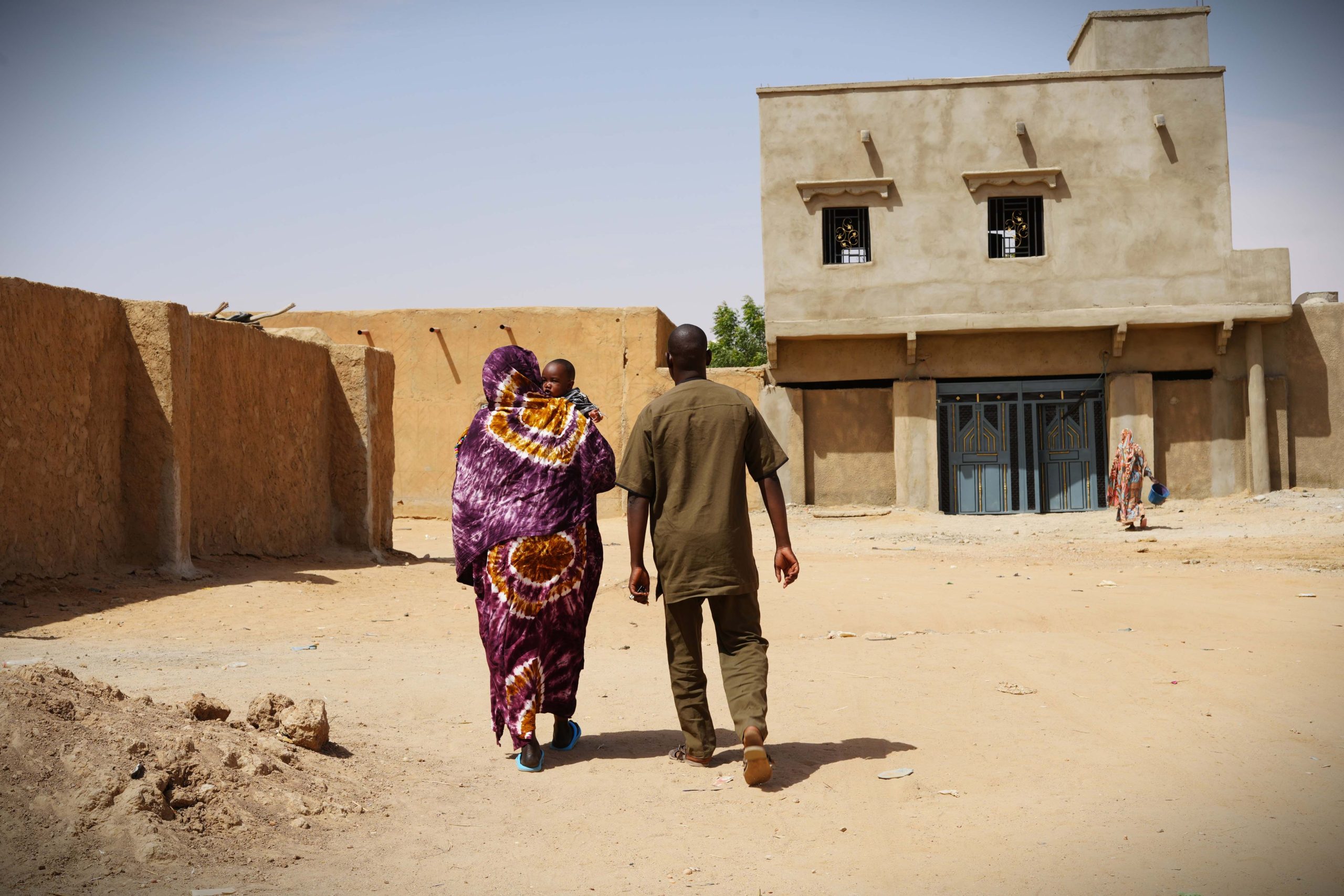
After their visit to the health center, Ramata and Abdourahamane carry their child Annajib on the long walk home. “For me, it is important to go to health centers to benefit from the quality of care,” says Abdourahamane. “It also allows me to gather good information on sexual and reproductive health, and the advantages and disadvantages of different family planning options.”
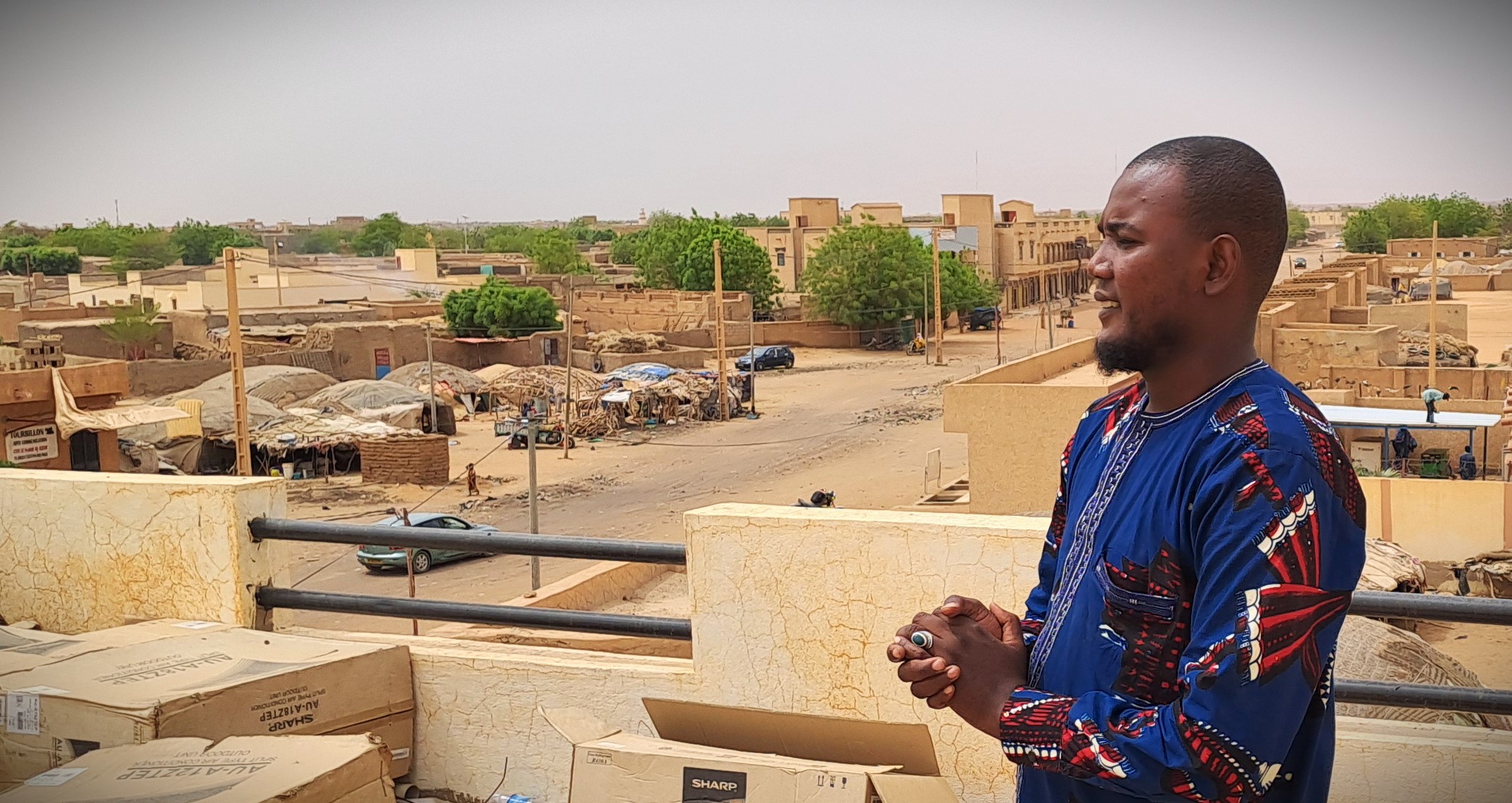
In the late afternoon, Abdourahamane looks out over his community from the rooftop of a local shop. “I am deeply concerned about the lack of awareness of the benefits of family planning within my community,” he sighs. “However, I would like to thank MOMENTUM and ask that you continue to help raise awareness to convey the right health information.”

